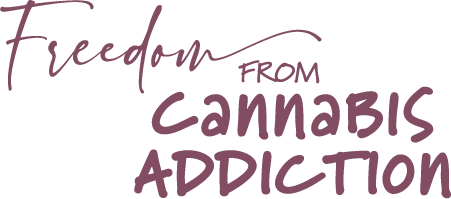Culture of Chronic Cannabis Use
Freedom From Cannabis Addiction ©
Antonia Teresa Amore-Broccoli, MSW, LCSW
February 21, 2024
Writing in Process . . .
The Culture of Chronic Cannabis Use
“The intent of this website and forthcoming book is to demonstrate through a review of addiction medicine science how the long-term and chronic use of cannabis impacts an individual’s cognition, psychology and physical health and wellness. Stories of people’s first hand recovery and freedom from cannabis addiction experiences can be read under stories tab.”
We live in a counter culture where we romanticize and validate hemp and cannabis, as a wonderful substance that has various medicinal qualities. Cannabis has the promise to substitute and even replace big pharmaceutical medications and to aid in the reduction of harm that often comes with heavier substance abuse and addiction. Nevertheless, cannabis is still a substance, a drug that changes the equilibrium of the brain. For some people, when used chronically, it has significant and profound consequences. The long-term effects on the brain and body make cannabis a dangerous drug to many people when used on a regular and chronic basis. The chronic use of cannabis can lead to negative outcomes. Many of these negative consequences may take years to manifest while some, especially young people, may realize it only takes a few years till it impacts their lives in a negative way.
A lack of medical and scientific research regarding the long-term effects of chronic cannabis use among the general population contributes to the myth that people cannot get addicted to pot. Actually, they can and they do. Fortunately, this lack of awareness is changing, especially in the last decade, with new research and studies coming out in the field of addiction psychology, documenting the long-term effects of cannabis use. An article published January, 2020: Hearing on Cannabis Policies for the New Decade presents a significant validation and demystification demonstrating that cannabis addiction is a real condition.
The increasing availability and potency of cannabis along with the proliferation of new cannabis products and methods for consuming them raise serious public health concerns. We know from other drug research that potency and route of administration are important factors in understanding the consequences of drug use, yet there is a relative dearth of research on these newer products. Rigorous research is essential for understanding how the changing cannabis landscape will affect public health and, ultimately, for guiding evidence-based policy. Despite the public health urgency, legal and regulatory barriers continue to present challenges to advancing cannabis research. . . .Cannabis use can lead to cannabis use disorder and, in severe cases, addiction. Data suggest that nearly 10 percent of people who use cannabis will become dependent on it. People who begin using cannabis before the age of 18 are four to seven times more likely to develop cannabis use disorder than adults. The risks of physical dependence, addiction, and other negative consequences increase with frequent use and exposure to high concentrations of THC. (1.)
As a clinical social worker since 1994 and an addiction specialist since 1992 I have counseled thousands of women and people with a variety substance use disorders.
However, my speciality has been cannabis use disorder and addiction among women and LGBTQIA and non white people. I have counseled both individually and in a supportive group setting for decades. The biggest challenge as a clinician is a general universal theme of society’s denial around cannabis use and the validity of cannabis use disorder or addiction itself. Cannabis is often considered the lesser of the evil substances? Yet it is a underrated addiction.
The majority of the people who present with cannabis used disorder in my clinical practice often come to me for other reasons: such as depression, anxiety, trauma, relationship issues, or career and job problems. For many years, I worked as a EMDR and trauma specialist. The main criteria that I suggested when I conducted multiple sessions for EMDR (clinically conducted over a period of 12 to 16 weeks ) is that the person remain free of all substance, including alcohol and cannabis.
This was a policy of mine that I highly suggested. EMDR clinicians at the time that I was impractical were in high demand And I felt that when somebody was drinking and were using substances Trauma treatment with EMDR was far less if at all effective. This was also suggested by the clinicians I trained under who were EMDR experts in the field. Therefore, I took the liberty to ask clients to sign a contract that they would be substance free between sessions for the 12-16 weeks of the EMDR and expressive arts treatment modality I developed.
I also asked them to be transparent and honest with me as their therapist if they did use any mind altering substances. I found that when people used alcohol, and or other substances, including cannabis, the trauma and EMDR treatment was not as effective. I noted as people tended to have a difficult time committing to a substance free life style throughout the course of treatment. Some people, usually those who did not have a substance use or alcohol use disorder, were able to complete a 12-16 week trauma intensive treatment modality with me. The EMDR was effective and their PTSD triggers decreased and people were able to utilize the tools implemented from treatment to help improve the regulation of their emotions.
However, most all of clients who had a dependency on cannabis went into full of detox and withdrawal symptoms which inevitably changed the trajectory of their trauma treatment. On the other hand, some people admitted they used more and more cannabis as a means of self treating their trauma and PTSD triggers. A substance free treatment modality was a suggestion not a mandatory criteria for continued treatment with me.
I’m an addiction specialist, as well a Licensed clinical therapist. My foundational clinical training is to address the alcohol and/or substance abuse; including cannabis use disorder in a person’s lives before we can get to deeper trauma work.
Therefore, it is highly suggested that a person be clean and sober off all mind and mood altering substance including alcohol (nonprescription) before they can effectively address other mental health problems including trauma.

